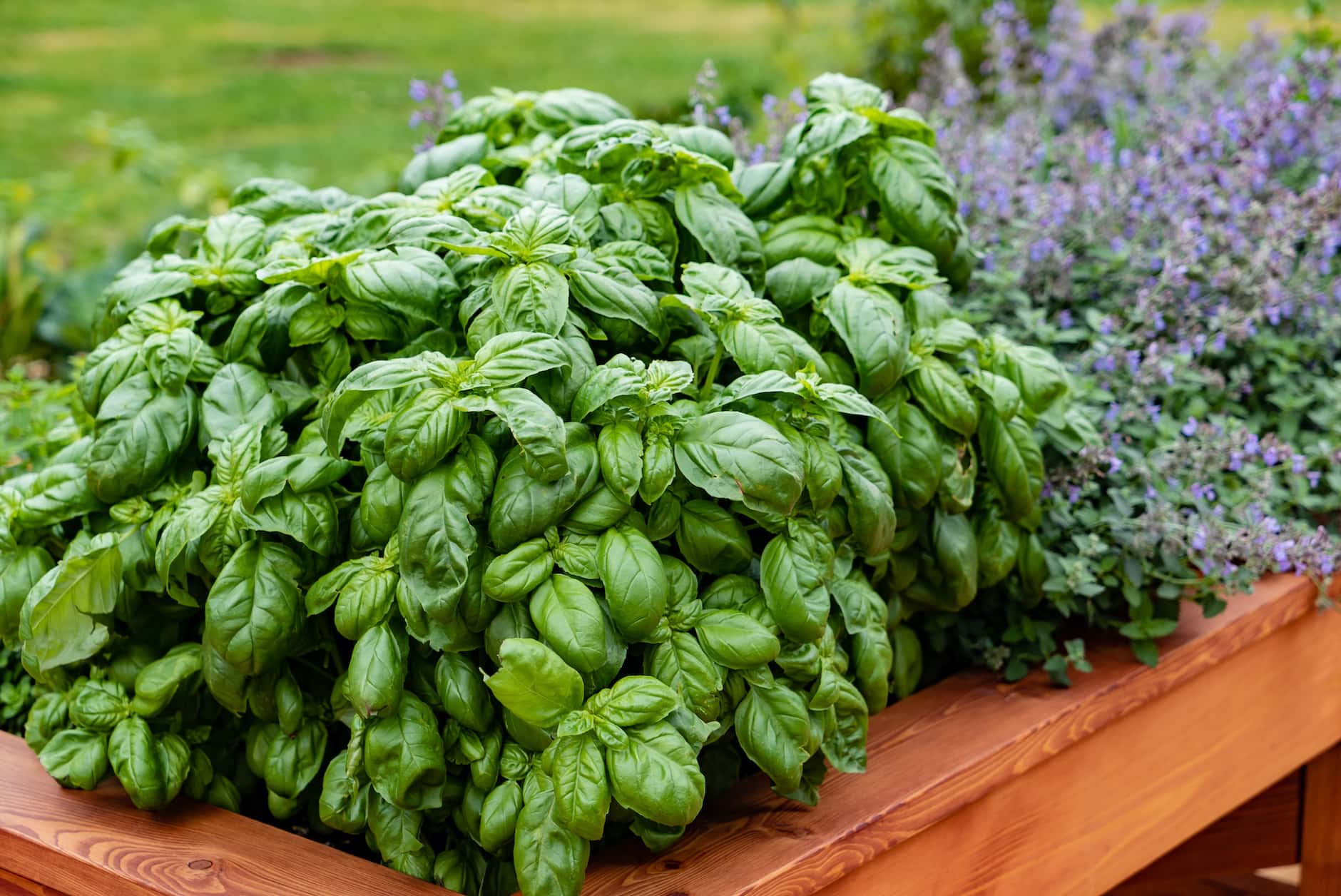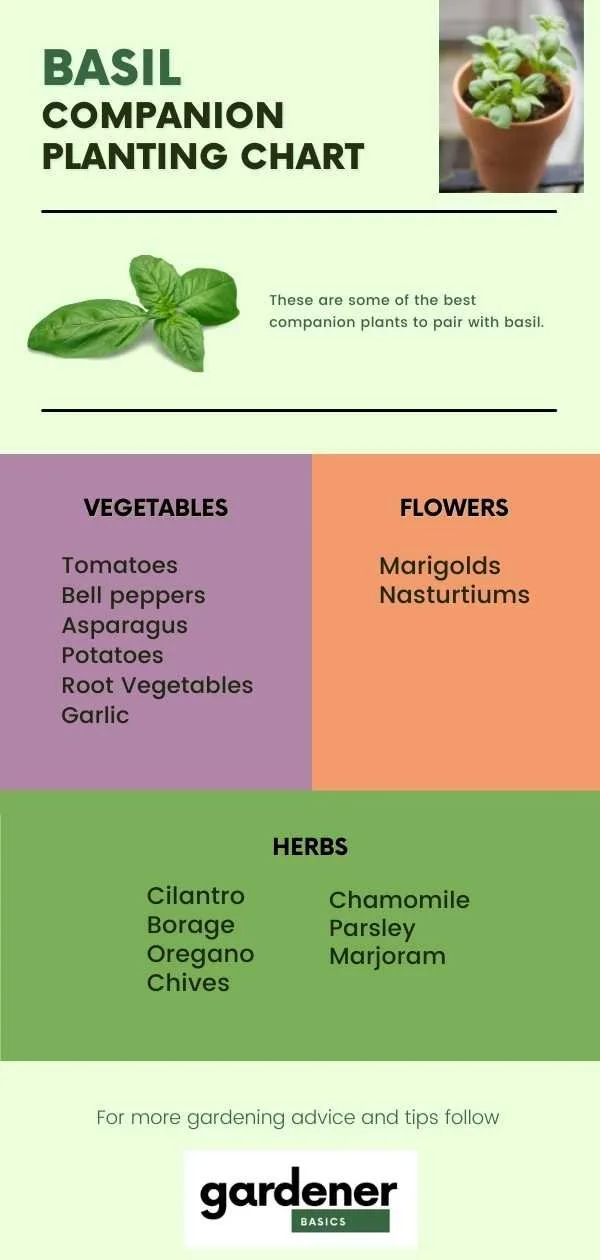Basil: The Perfect Companion Plant
Basil is a popular herb that is known for its delicious flavor and versatility. It can be used in a variety of dishes, from Italian pasta sauces to Southeast Asian curries. But basil is more than just a tasty herb; it can also be a beneficial companion plant for other vegetables in your garden.
In this blog post, we will discuss the benefits of companion planting with basil and some of the best plants to grow it with. We will also provide some tips on how to plant and care for basil companion plants.
Benefits of Companion Planting with Basil
There are many benefits to companion planting with basil. Some of the most notable benefits include:
- Improved growth and flavor: Basil can help to improve the growth and flavor of other plants in your garden. For example, basil can help to repel pests that can damage tomatoes and peppers, and it can also help to improve the flavor of tomatoes.
- Attraction of beneficial insects: Basil attracts beneficial insects such as ladybugs, hoverflies, and parasitic wasps. These insects help to control pests in your garden, which can save you time and money on pest control products.
- Disease prevention: Basil can help to prevent the spread of diseases in your garden. For example, basil can help to prevent the spread of powdery mildew, which is a common disease that can affect tomatoes and cucumbers.
- Improved soil quality: Basil can help to improve the soil quality in your garden. It releases nitrogen into the soil, which can help to feed other plants. Basil can also help to suppress weeds.
Best Companion Plants for Basil
Some of the best companion plants for basil include:
- Tomatoes: Basil and tomatoes are a classic companion plant combination. Basil helps to repel pests that can damage tomatoes, such as aphids, whiteflies, and spider mites. It also helps to improve the flavor of tomatoes.
- Peppers: Basil is also a good companion plant for peppers. It helps to repel pests that can damage peppers, such as aphids, whiteflies, and spider mites. It also helps to improve the flavor of peppers.
- Cucumbers: Basil can help to deter cucumber beetles, which can damage cucumbers. It can also help to improve the flavor of cucumbers.
- Carrots: Basil can help to deter carrot flies, which can damage carrots. It can also help to improve the flavor of carrots.
- Beans: Basil can help to improve the growth and yield of beans. It can also help to deter bean beetles, which can damage beans.
- Potatoes: Basil can help to deter potato beetles, which can damage potatoes. It can also help to improve the flavor of potatoes.
- Squash: Basil can help to deter squash bugs, which can damage squash. It can also help to improve the flavor of squash.
- Herbs: Basil can be planted with other herbs, such as mint, oregano, and thyme. These herbs can help to repel pests and improve the flavor of each other.
How to Plant and Care for Basil Companion Plants
When planting basil companion plants, it is important to consider the sunlight and water requirements of each plant. Basil prefers full sun and moist soil. Other plants may have different requirements, so it is important to do your research before planting.
Once your plants are in the ground, it is important to water them regularly. Basil is a thirsty plant, so it may need to be watered daily during hot weather. You should also fertilize your basil plants every few weeks with a balanced fertilizer.
With proper care, your basil companion plants will thrive and help to keep your garden healthy and productive.
Basil is a delicious and versatile herb that can be used in many different dishes. But did you know that basil can also be a beneficial companion plant for other vegetables?
When planted near certain vegetables, basil can help to repel pests, attract beneficial insects, and improve the flavor of the vegetables. Some of the best companion plants for basil include tomatoes, peppers, eggplants, carrots, and potatoes.
For example, basil can help to deter tomato hornworms, which are a common pest of tomatoes. It can also attract ladybugs, which are natural predators of aphids. And when planted near carrots, basil can help to improve the flavor of the carrots.
If you're interested in learning more about basil as a companion plant, I recommend visiting Gardenia Inspiration. This website has a comprehensive guide to companion planting, including information on the best companion plants for basil.
FAQ of basil as companion plant
- What are some good companion plants for basil?
- Tomatoes: Basil and tomatoes are a classic companion plant combination. They both love full sun and well-draining soil, and they can help each other thrive. Basil can help to deter pests from tomatoes, and tomatoes can help to improve the flavor of basil.
- Peppers: Peppers are another good companion plant for basil. They have similar growing requirements, and they can help to repel pests from each other.

- Carrots: Basil can help to improve the flavor of carrots, and it can also help to deter pests from them.
- Lettuce: Basil and lettuce can be planted together in the same garden bed. They have similar growing requirements, and they can help to attract beneficial insects to the garden.

- Garlic: Basil and garlic can be planted together to help deter pests from each other. Garlic can also help to improve the flavor of basil.

- Why is basil a good companion plant?
Basil is a good companion plant for a number of reasons. It can help to deter pests from other plants, it can attract beneficial insects to the garden, and it can improve the flavor of other plants.
- Basil can deter pests such as aphids, spider mites, and whiteflies. Its strong scent can mask the scent of other plants, making them less attractive to pests.
- Basil can attract beneficial insects such as ladybugs, hoverflies, and wasps. These insects prey on pests, helping to keep them under control.
- Basil can improve the flavor of other plants, such as tomatoes and peppers. Its strong flavor can enhance the taste of these vegetables.
- How far apart should basil plants be planted?
Basil plants should be planted about 12 to 18 inches apart. This will give them enough room to grow and spread.
- When should I start growing basil?
Basil can be started indoors about 6 weeks before the last frost date in your area. Once the weather has warmed up, you can transplant the basil plants outdoors.
- How do I care for basil plants?
Basil plants need full sun and well-draining soil. They should be watered regularly, but not too much. Basil plants also benefit from being fertilized every few weeks.
Image of basil as companion plant
5 different images of "basil as companion plant" from Pinterest:
- Basil and tomatoes. Basil is a great companion plant for tomatoes because it helps to deter pests such as aphids and whiteflies. It also attracts pollinators, which can help to improve the yield of your tomato plants.
- Basil and peppers. Basil is also a good companion plant for peppers. It helps to deter pests such as aphids and spider mites. It also helps to improve the flavor of peppers.

- Basil and marigolds. Basil and marigolds are both known for their insect-repelling properties. When planted together, they can help to deter a variety of pests, including aphids, beetles, and mosquitoes.
- Basil and carrots. Basil can help to improve the flavor of carrots and also deter pests such as carrot flies.
- Basil and cucumbers. Basil can help to deter cucumber beetles and improve the flavor of cucumbers.

Post a Comment for "Basil: The Perfect Companion Plant"